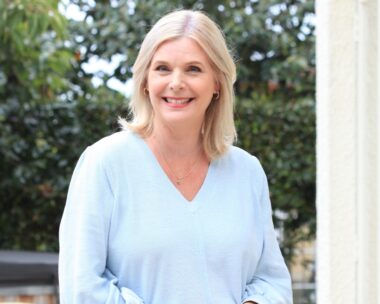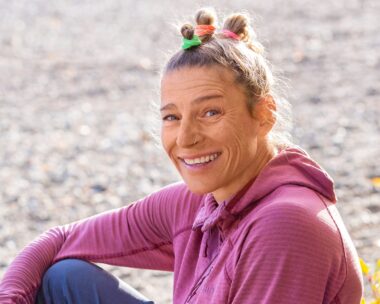The day that Maumita and Anjan Banerjee lost their youngest son Aryan, a rare autumn snow flurry fell across the Hawke’s Bay. It was May 25 2015, and Maumita remembers looking out the window at work and thinking how much her boys, Aryan, aged nine, and hisbig brother Anshul would enjoy playing in the snow at school.
At 12.45pm, Maumita had returned from her lunch break when she answered a call from the principal at Taradale School.
“He said, ‘You need to come to school now and bring your husband,’” recalls Maumita, 40.
“I said, ‘Which boy is it?’ He said, ‘Aryan.’ I just went cold. I knew.”
On the other side of Napier, Anjan was also heading to Taradale School – but unlike his wife, he wasn’t thinking the worst. As a doctor, he was used to dealing with trauma.

“I thought Aryan may have fallen and hurt his elbow or knee,” remembers Anjan, a 46-year-old GP. But when Anjan arrived at school, his happy-go-lucky son was lying immobile on the ground near the ambulance. The young boy was cold, but paramedics had restarted his heart with adrenaline.
He was intubated in front of his father’s eyes, a plastic tube put into his throat.
“The doctor in me knew it was bad,” says Anjan. “But as a father, I held on to hope.”
The Banerjees now know Aryan had been trapped in a school toilet with no door handle on the inside. The caretaker of the school had removed the handles to fix them, but the toilet had not been cordoned off and there was no sign saying it was out of order.

Suddenly locked in, Aryan had no doubt called out, but no-one heard. In desperation, he tried to escape from the window, but the neck on his T-shirt snared on the window latch as he jumped down. Aryan was left strangled, his feet dangling two feet above the ground.
“That morning, Aryan left wearing a red polo shirt and he always insisted on doing the top button up,” says his mother Maumita quietly. Arriving at school that day just after her husband,
she looked at Aryan and knew it was too late. He had deep marks around his neck and the button on his polo shirt was embedded into his neck.
“His toes were purple,” she tells. “I touched Aryan and he was cold. I knew he was gone.”
More than 18 months on, Maumita and Anjan remain broken. Just three years after arriving from the United Kingdom to seek a fresh start for their family, they are learning to live without one son.
Although they try to hide their grief from their older son Anshul, now 12, their tears fall freely when he is not around. Their story is not just of loss and heartbreak, but also of
a fight for justice.

The family has spent a significant part of their life savings on one of New Zealand’s leading barristers, Nigel Hampton QC. Anjan and Maumita say that Aryan’s death was easily preventable and no accident. They want to see corporate manslaughter measures in health and safety law.
WorkSafe New Zealand decided last year to take no action against the school or staff. “It just feels so unfair,” says Maumita. “How can a young boy die at school but no-one is held accountable? A sign or a cordon outside the toilet could have saved my son’s life.”
A coroner’s report released last week found that “the death could have and should have been avoided”.
The couple lost Aryan for the second and final time on September 7, 2015. “It was at 12.45pm, the same time he died at school,” tells Maumita.
After more than three months at Auckland’s Starship children’s hospital, he passed away in his parents’ arms, with his brother Anshul beside him. The young boy had sustained irreversible brain damage as a result of the asphyxia.
“He was blind, his control centre had gone, his arms and legs contracted wildly,” says Maumita. “It was terrible to watch.”
For 14 weeks, Maumita kept vigil at her son’s hospital bedside, only retiring to Ronald McDonald House to grab a few hours of sleep. “I massaged him, I read to him, I just spent time with him,” she says.
Anjan and Anshul flew to Auckland each weekend, but returned to Taradale for school and work on Sunday nights. “It was a difficult time, but the local community was amazing,” says Anjan. “Every time I opened the front door at home, there were cards, dinners and baking on the doorstep.”
Although the Banerjees knew Aryan would always need 24-hour care if he had survived, they clung on to the hope that he would one day be stable enough to return home. At one point, they grew optimistic and thought he was trying to communicate.
Anjan tells, “But after a while, we realised he was saying, ‘Ow, ow.’ Patients with brain damage can still feel terrible pain. It was like his body and his brain were on fire.”

Specialists at Starship told Aryan’s family to hope for a miracle. “But there are no miracles in real life,” says Maumita.
By the time Aryan slipped away last year, he had battled three bouts of aspiration pneumonia, where food is inhaled into the lungs. “The cycle of pain was unbearable – it wasn’t fair on Aryan,” tells Anjan. “We decided to let him go peacefully.”
Aryan was cremated and his grieving family made a pilgrimage to India to release his ashes into the Ganges River. “We believe you need to raise the soul so it can move on,” explains Anjan.
More than a year on, the agony is still raw, but the Banerjees hold on to cherished memories of their precious son – a boy who hated eating vegetables but loved cuddles.
“Every morning, Aryan would go from his top bunk into the bottom bunk for a cuddle with his brother,” smiles Maumita. “Then both boys would jump into our bed at 7am – we never needed an alarm clock.”

Anjan remembers walking into the house at the end of each day to be greeted by Aryan flying into his arms. “We still miss him every day,” he says.
A favourite memory is a trip the family made to India the January before Aryan’s death, with both sets of grandparents. “We went all over, from New Delhi to Agra, to Orissa,” recalls Maumita. “Aryan was just so happy.”
While life will never be the same, Maumita and Anjan are trying to look towards the future for the sake of their remaining son Anshul.
“Anshul is probably doing better than anyone,” admits Anjan. “He is a level-headed boy who has a great support network around him.”

Maumita copes by being busy – working at a bank during the week and at a local vineyard during weekends.
“I don’t like being at home on my own,” she says.
In comparison, Anjan has reduced his hours at the practice to help coach Anshul’s soccer and cricket teams. “It’s easy to look back and regret all the hours at work,” he tells.
“I just want to spend every minute I can with Anshul. Children are precious.”




